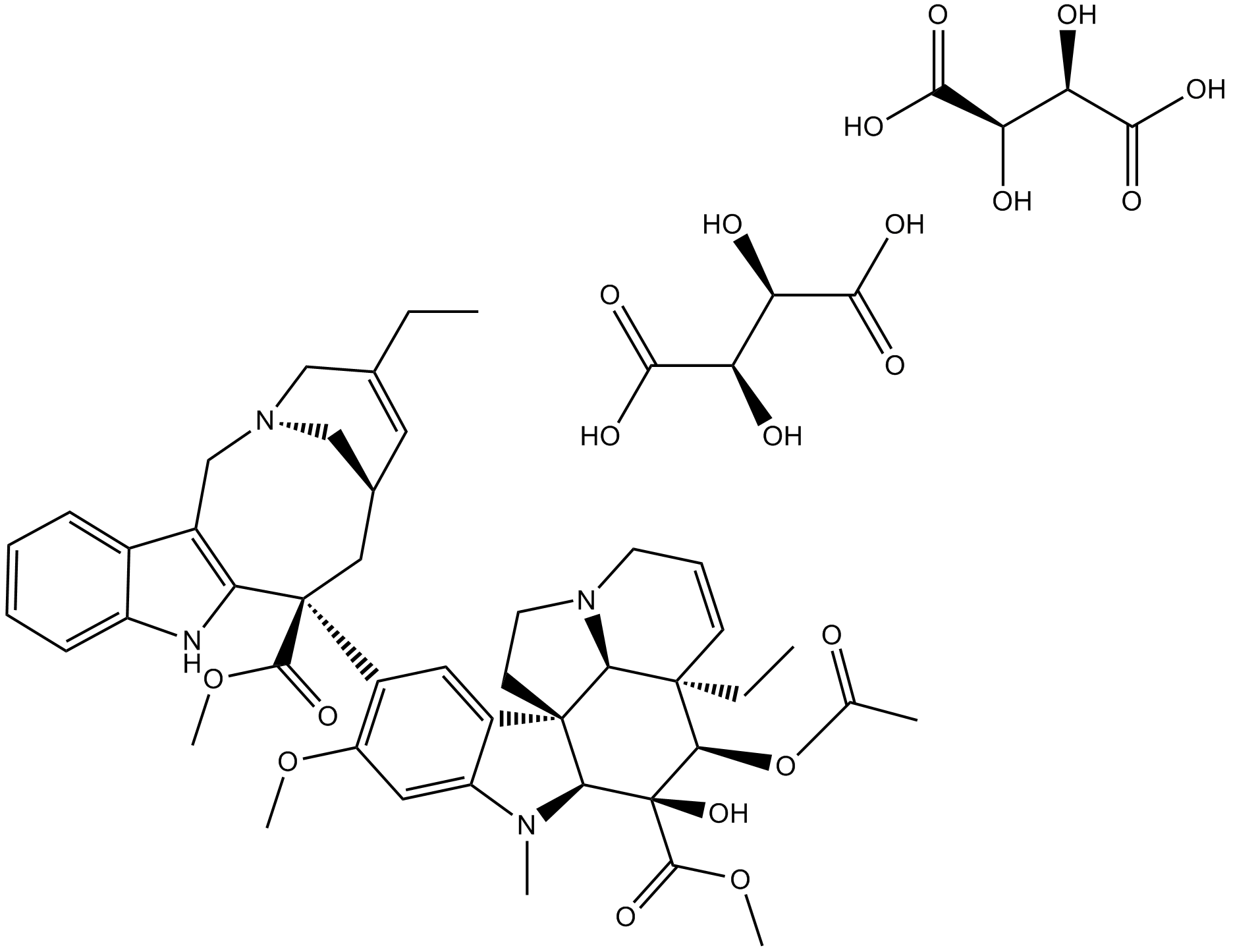Vinorelbine ditartrate (Synonyms: KW 2307) |
| Catalog No.GC14806 |
An inhibitor of microtubule polymerization
Products are for research use only. Not for human use. We do not sell to patients.

Cas No.: 125317-39-7
Sample solution is provided at 25 µL, 10mM.
Description: IC50 Value: 1.25 nM (Hela cell) [1] Vinorelbine is an anti-mitotic chemotherapy drug that is given as a treatment for some types of cancer, including breast cancer and non-small cell lung cancer. in vitro: Vinorelbine, more significantly, inhibits the proliferation of HeLa cells with IC50 of 1.25 nM, compared to vinflunine with IC50 of 18 nM. Vinorelbine blocks cell cycle progression in mitosis with IC50 of 3.8 nM, which is only slightly higher than the IC50 value for inhibition of proliferation, indicating that mitotic block is a major contributor to antiproliferative action. Vinorelbine has the greatest effect, 29%, on reduction of the spindle length compared to 20% by vinflunine and 22% by vinblastine at the IC50 concentrations of the three drugs [1]. Vinorelbine induces concentration- and time-dependent increases in the protein levels of both p53 and p21 in hormone-dependent (AD) LNCaP cells, and can restore p21 expression in androgen-independent (AI) prostate cancer cells through both p53-dependent and-independent pathways [2]. in vivo: Nineteen dogs were treated with vinorelbine as a 5-minute IV infusion every 7 days at starting dosages ranging from 10 to 20 mg/m2. The median number of treatments per dog was 7 (range, 1-11). The maximum tolerated dosage varied between 15 and 18 mg/m2, and a starting dosage of 15 mg/m2 is recommended [3]. Sixty-one VRL treatments were administered. Median number of treatments was 2 (range, 1-9). Starting dosages were 9-12 mg/m(2) . Maximal dosage administered was 15.5 mg/m(2) . The MTD was 11.5 mg/m(2) . Acute DLTs were neutropenia, vomiting, and nephrotoxicity. Other notable toxicities were weight loss and anemia [4]. Toxicity: Acute DLTs were neutropenia, vomiting, and nephrotoxicity. Other notable toxicities were weight loss and anemia [4]. Clinical trial: XeNa: Phase II Trial With Metronomic, Capecitabine Plus Oral Vinorelbine for Metastatic Breast Cancer. Phase 2
Average Rating: 5 (Based on Reviews and 30 reference(s) in Google Scholar.)
GLPBIO products are for RESEARCH USE ONLY. Please make sure your review or question is research based.
Required fields are marked with *




















